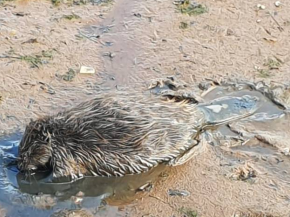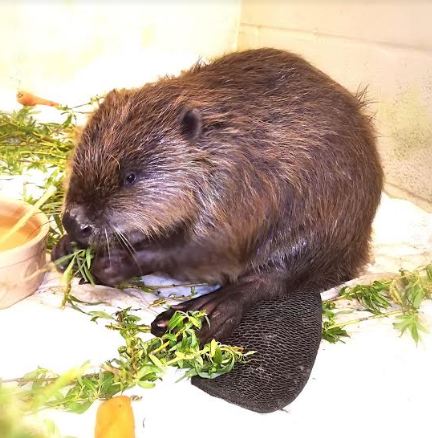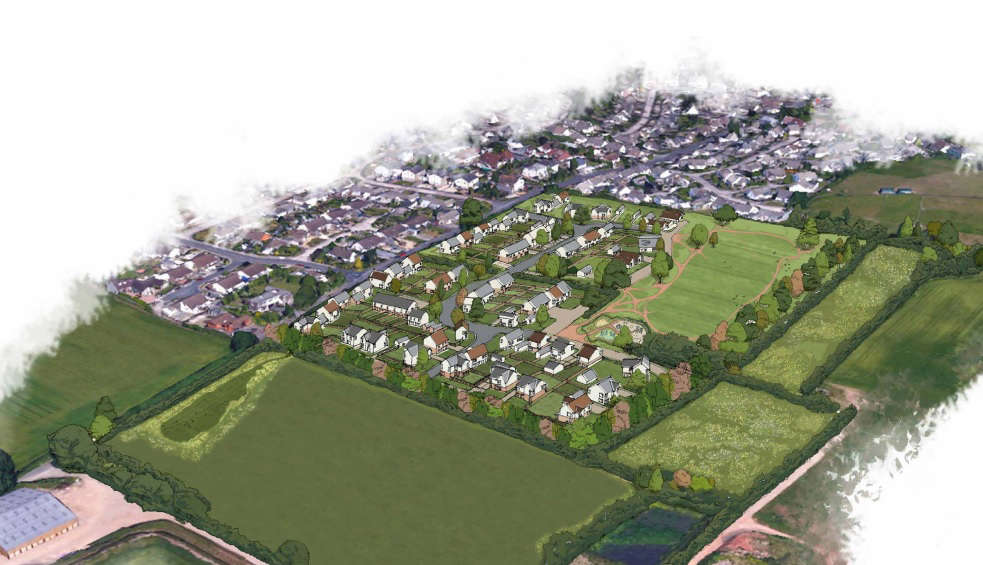
Now on road-ent to recovery
A beaver stuck in estuary mud is back to robust rodent health after recuperating with the RSPCA.
Beavers were reintroduced to the UK by Devon Wildlife Trust and Natural England some years ago and although their precise location has never been revealed, it's known the families are on the River Otter.
The young beaver came to be languishing in the estuary probably because it took "a wrong turn" according to Devon Wildlife Trust. The trip certainly wasn't a smooth one and it could have been much more serious were it not for an organisation called Wild-Woodbury.
They became the first ever beaver to be treated by RSPCA's West Hatch centre near Taunton.
Wildlife vet Dr David Couper at the centre said: “The beaver came in totally collapsed, I think mostly from exhaustion and stress, but there was the possibility of salt water poisoning as it is assumed it had been in the sea for a length of time.
“Thankfully, with supportive care in terms of fluids and warmth, the beaver picked up markedly over the next couple of days.”
Once the beaver was fully fit, the RSPCA team worked closely with Devon Wildlife Trust and Natural England for release on the River Otter, first going into a temporary enclosure on the river before spending two weeks being carefully monitored by the team from Devon Wildlife Trust.
Steve Hussey from Devon Wildlife Trust said: “We want to thank the efforts of this beaver’s rescuers, and also the wonderful work of the RSPCA in giving it a safe and secure home during the recuperation.
“We think this beaver was a juvenile animal, probably looking to find a new territory in which to set up home. Somewhere along the line it just took a wrong turn.
"We’ve now returned the beaver to a quiet section of the River Otter and our last observations of it showed the animal to be doing well.”
“In August 2020 we received the good news that Defra had given the beaver population living wild on the River Otter leave to stay permanently. We are now awaiting Defra’s decision as to whether further reintroductions of this once-native animal species can take place elsewhere in England.”

On the road-ent to recovery (courtesy; RSPCA)
Tony Bennett from Wild-Woodbury, who carried out the rescue before transporting the beaver to RSPCA West Hatch, said: “When we get the casualty it is often a different species, different age and in different condition. Bearing that in mind you can understand why we were skeptical when a boat owner called us to say that a beaver was stuck in the mud on the estuary in Exmouth!
“If he hadn’t sent me a photo of the casualty I would have expected to find a wet squirrel or a young otter. In this instance I knew straight away that their identification was correct and that we had a serious problem on our hands.”
David, who has been a specialist wildlife vet at RSPCA West Hatch for more than 18 years, added: “Around 18,000 animals are admitted at its four wildlife centres annually, rescued by members of the public, the RSPCA inspectorate and other animal welfare charities. We deal with around 200 different species, from pygmy shrews, to grey seals. While all of these animals are interesting in their own right, there is an added buzz to dealing with a rare species, such as a Barbastelle bat, or an unusual visitor to our shores, such as a honey buzzard or Kemps-Ridley sea turtle.
“We’ll certainly never forget welcoming our first beaver! It was an honour to be able to lend a helping hand at the beaver’s time of desperate need and great to hear the beaver is doing well back in the river.”
 Developer apologises after backlash to footpath
Developer apologises after backlash to footpath
 Huge criminal crackdown in Torquay
Huge criminal crackdown in Torquay
 Torquay big wheel will keep on turning
Torquay big wheel will keep on turning
 Brixham homes plan rejected despite 'NIMBY' claim
Brixham homes plan rejected despite 'NIMBY' claim
 How Bollywood brought Torquay's big wheel to millions
How Bollywood brought Torquay's big wheel to millions
 Fifth person arrested over 'unusual batch of heroin'
Fifth person arrested over 'unusual batch of heroin'
